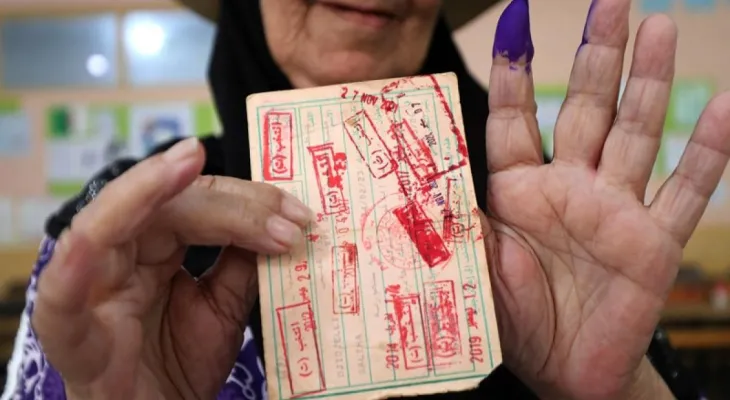Search here
Newspaper
Search here

Arab Canada News
News

Published: September 7, 2024
Algerians continue to head to the polling stations to cast their votes in the presidential elections today, Saturday, amid weak turnout so far, with the participation rate reaching only 13.11 percent by one o'clock in the afternoon.
More than 24 million Algerian voters were called to cast their votes in a presidential election expected to be won by President Abdelmadjid Tebboune (78 years old) for a second term, with the biggest challenge being the turnout rate in the ballot.
The polling stations opened at eight o'clock in the morning local time and will close at seven in the evening.
The first results are expected to emerge starting tonight, with the official announcement to be made tomorrow, Sunday.
However, it seems that the winner is already known, as the outgoing president enjoys the support of the parliamentary majority parties, most notably the "National Liberation Front," the "Islamic Party," and the "Building Movement," whose candidate finished second in the 2019 elections.
Two candidates are competing against Tebboune: Abdelali Hasani Cherif (57 years old), the president of the "Movement for the Society of Peace," who is a public works engineer, and former journalist Youssef Ouchiche (41 years old), the president of the "Socialist Forces Front," which is the oldest opposition party in Algeria located in the Kabylie region in the northeast of the country.
These elections were scheduled to take place at the end of Tebboune’s term in December, but he announced last March the organization of early elections on the seventh of September.
Tebboune desires a large turnout in the ballot, as the elections that brought him to the presidency five years ago witnessed a record abstention of 60 percent, while the massive "Hirak" demonstrations demanding democracy were still at their peak. He received 58 percent of the votes at that time.
Abroad, Algerian expatriates began casting their votes since last Monday, with a number of 865,490 voters, according to the National Independent Election Authority. Mobile polling offices were also allocated for residents in remote areas within the country.
The three candidates focused their campaign speeches on social and economic issues, promising to work on improving purchasing power and diversifying the economy to become less dependent on hydrocarbons, which constitute 95 percent of the country’s hard currency resources.
On the international level, there was a consensus among the three candidates regarding defending the Palestinian cause and the independence of Western Sahara, which the Polisario Front and Algeria advocate in the face of Morocco.
Comments